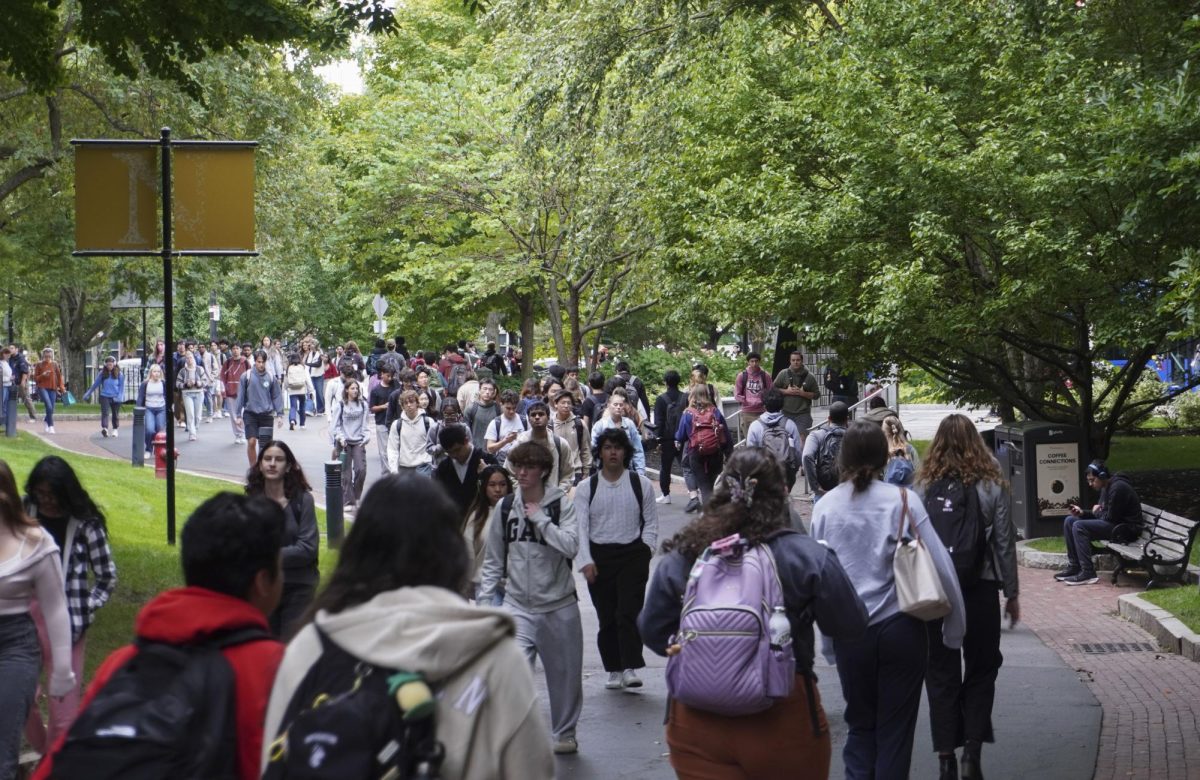The number of attempted automobile thefts and burglaries in Boston this year has decreased compared to the first months of 2007, yet the numbers typically remain higher around college campuses, said Boston Police officer James Kenneally.
Between Jan. 1, 2007 and Feb. 18, 2007, the number of vehicle thefts and attempted thefts in Boston was 514, while in 2008 between the same dates the number declined to 318, according to information provided by the Office of Strategic Planning and Research.
“Generally speaking, around college campuses, numbers have a tendency to be higher, especially in August and September when college kids first come into town and aren’t as aware about the need to protect their stuff,” Kenneally said.
Thefts and burglaries involving cars parked on the Northeastern campus has not been a major issue in the past, said Jim Ferrier, associate director of Northeastern University Division of Public Safety. “I’ve been quoted many times in the past saying that one of the safest places to park a car in Boston is in a Northeastern University parking facility,” Ferrier said. Caitlin Ahern, a middler business administration and entrepreneurship dual major, said cars are probably more susceptible to vandalism when parked on the street instead of in garages.
“Some people get drunk and stupid. I have seen cars parked on the road with windows smashed and antennae bent,” Ahern said. Some car thefts and burglaries that occur on Northeastern’s campus are more than simply foul play, like an incident that occurred Feb. 18 outside of Davenport A on Columbus Avenue.
Nicole Young, a sophomore economics major, said she was returning to her residence hall after a weekend away when she and her older sister, Danielle, left their Honda parked on Davenport Street, in between Davenport A and Davenport B, while they carried belongings upstairs to her room. The women said they spotted two suspicious men walking near them, but assumed the car would be fine, since they had locked the car and it was during the day. But while the women were in the building, the window on the driver’s side of the car was smashed, and a variety of Danielle’s personal belongings were stolen, she said. The women notified Boston Police, but they were unsuccessful in finding the culprits, Young said.
Young admitted it was foolish to walk away when they had noticed the suspicious men, but questioned the sense of security on the Northeastern campus, since the theft took place close to the Northeastern police station.
“Northeastern has a camera right over the car and they didn’t get any footage on it. Obviously these kids felt comfortable enough to break into the car in mid daylight,” Young said.
Ferrier said although the number of thefts and burglaries in designated parking areas and garages on the Northeastern campus is relatively low – in each of the past three years, two cars have been stolen, amounting to six total – parking outside these boundaries is more dangerous.
“If you choose to park on city streets around the perimeters of the campus, there’s a greater chance of being broken into, especially if it’s not a heavily foot-traveled place,” Ferrier said.
Day parking permits, which are valid from 7 a.m. until 11 p.m. are $310 per semester, and $155 per summer semester, according to Northeastern’s parking website. The website also states overnight parking permits for students are $410 per semester and $205 per summer semester plus the cost of a day permit.
The Cashier’s Office in Richard’s Hall issues parking stickers for Northeastern students who commute or choose to keep their car on campus. There are six parking areas accessible to students, three of which allow overnight parking.
Carrie Schwarz, a middler communication and media studies dual major, said there are many risks involved with keeping a car on campus that do not involve burglary, like accidents, having it towed or stolen and an increase in insurance.
“I don’t think that a car [on campus] is a good idea because there is so much public transportation.










